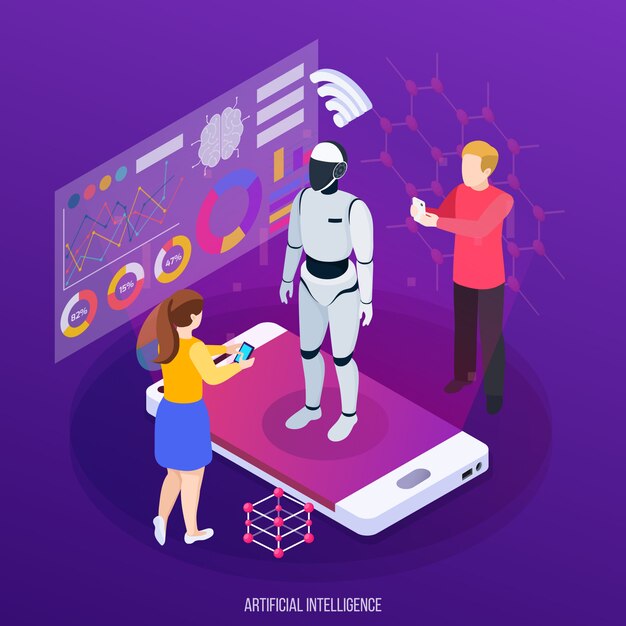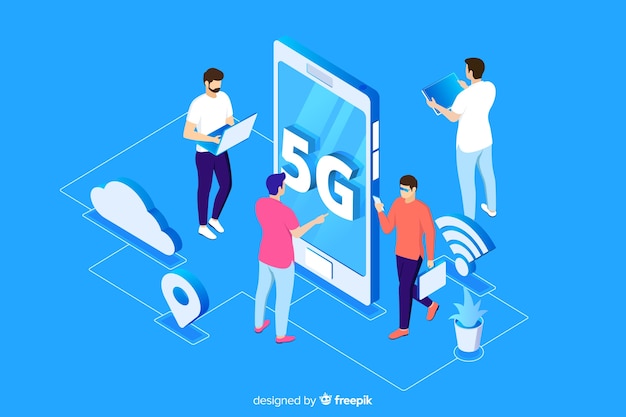Artificial Intelligence (AI) has become a game-changer in the world of mobile applications. From personalized user experiences to advanced security measures, AI is transforming how we interact with our mobile devices. As AI continues to evolve, its impact on mobile apps is growing significantly, offering enhanced efficiency, automation, and smarter functionalities. In this article, we will explore how AI is revolutionizing mobile applications across various industries and functionalities.
1. Personalized User Experience
One of the most noticeable impacts of AI in mobile applications is the ability to personalize user experiences. AI-powered recommendation engines analyze user behavior, preferences, and past interactions to provide tailored content. Streaming services like Netflix and Spotify use AI to suggest movies, shows, and music based on user preferences. Similarly, e-commerce apps leverage AI to recommend products, creating a seamless and engaging shopping experience.
2. Voice Assistants and Chatbots
AI-driven voice assistants such as Siri, Google Assistant, and Alexa have become integral to mobile applications. These assistants use Natural Language Processing (NLP) and Machine Learning (ML) to understand user commands and provide accurate responses. Additionally, AI-powered chatbots enhance customer service by offering real-time support, reducing the need for human intervention, and improving response times.
3. Enhanced Security and Fraud Detection
AI is playing a crucial role in improving mobile app security. Biometric authentication, such as facial recognition and fingerprint scanning, is now common in banking and finance apps. AI algorithms analyze patterns to detect fraudulent activities, preventing unauthorized transactions. AI-driven cybersecurity systems continuously learn and adapt to emerging threats, making mobile applications safer for users.
4. Smarter Camera and Image Recognition
Mobile applications in photography, social media, and augmented reality (AR) have greatly benefited from AI-powered image recognition technology. AI enhances smartphone cameras by automatically adjusting settings for optimal image quality. Apps like Google Lens use AI to identify objects, text, and landmarks in real-time. Social media platforms integrate AI to apply filters, improve facial recognition, and generate engaging visual content.
5. AI in Healthcare Mobile Apps
The healthcare industry is leveraging AI to improve patient care and diagnosis. Mobile health (mHealth) apps use AI to monitor vital signs, provide health recommendations, and assist doctors in diagnosing diseases. AI-powered chatbots help patients with initial assessments and suggest medical consultations based on symptoms. These innovations are making healthcare more accessible and efficient.
6. AI in Finance and Banking Apps
Financial applications are using AI to enhance security, detect fraud, and provide financial insights. AI-powered robo-advisors help users make investment decisions based on their financial goals. Chatbots in banking apps assist customers with transactions, account inquiries, and budgeting tips. AI-driven predictive analytics enable financial institutions to offer personalized financial services to users.
7. AI-Powered Smart Assistants in Productivity Apps
Productivity apps are integrating AI to help users manage tasks efficiently. Virtual assistants like Google Assistant and Apple’s Siri can schedule meetings, set reminders, and organize tasks. AI-driven automation tools, such as Grammarly, improve writing by suggesting corrections and enhancements. These AI features help users stay productive and organized.
8. AI in Gaming and Entertainment Apps
The gaming industry has embraced AI to create immersive and dynamic experiences. AI algorithms enhance game graphics, create intelligent non-playable characters (NPCs), and adapt difficulty levels based on player performance. Streaming platforms use AI to optimize video quality and recommend content based on user preferences. AI-generated content is also shaping the future of interactive entertainment.
9. AI-Driven Augmented Reality (AR) and Virtual Reality (VR) Apps
AI is enhancing AR and VR applications by making them more interactive and realistic. AI-powered AR apps can recognize real-world objects and overlay digital information seamlessly. Mobile apps for interior design, education, and gaming utilize AI to create realistic and engaging experiences. As AI technology advances, AR and VR applications will continue to evolve, offering innovative possibilities.
10. AI in E-Learning and Educational Apps
Educational apps are leveraging AI to offer personalized learning experiences. AI-powered tutoring systems analyze student performance and provide customized study plans. Language learning apps, such as Duolingo, use AI to adapt lessons based on user progress. AI also enables automatic grading, making assessments more efficient and accurate for educators.
Conclusion
AI is undeniably revolutionizing mobile applications by enhancing personalization, security, automation, and user engagement. From entertainment and healthcare to finance and education, AI-driven innovations are transforming the way mobile apps function. As AI continues to evolve, the future of mobile applications looks promising, with smarter, more efficient, and highly personalized experiences for users worldwide. Businesses and developers must embrace AI technologies to stay ahead in the competitive app market, ensuring they provide cutting-edge solutions for the ever-growing mobile user base.




